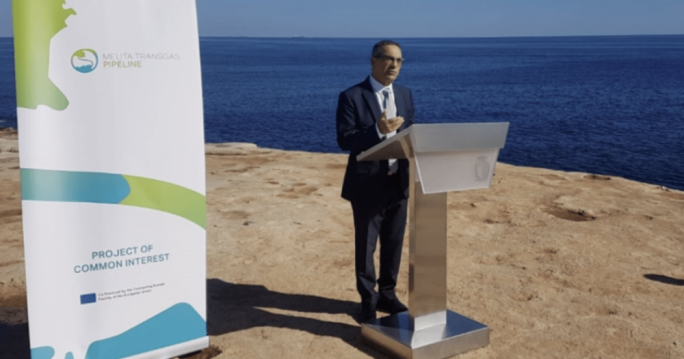
Editorial | War and peace
The EU must seek greater energy independence by investing more in renewable energy while bolstering the markets and networks for transition fuels like natural gas and nuclear

Ursula von der Leyen used the word ‘war’ 16 times in her 57-minute state of the union speech in the European Parliament yesterday.
‘War’ is not normally part of the EU vocabulary given the union’s lack of a common security and defence policy, and its reliance on diplomacy.
But Russia’s invasion of Ukraine has brought the stark reality of war to Europe’s borders.
The EU could have looked the other way, or stopped at condemning Russian belligerence while continuing to plod along as if nothing serious had happened. But doing so would have raised fundamental questions about the EU’s resolve to act as a meaningful player within its own region and the world.
Russia’s invasion of Ukraine had no basis in international law and any pretence of coming to the rescue of ethnic Russians in the eastern regions flew out of the window the minute a full-scale invasion was launched.
President Vladimir Putin repeatedly lied to the international community in the run-up to the invasion when Russian troops were amassing on Ukraine’s borders and concerns were being raised on the true intentions of the Russian military.
Putin’s own actions and empty rhetoric attempting to justify the full-scale invasion by branding Ukraine a Nazi state poke holes in the arguments made by EU sceptics who continue to give him the benefit of the doubt.
The EU’s decision to impose sanctions and help Ukraine finance its war effort through military aid were necessary. At stake is the freedom, peace and serenity the continent has been enjoying since the fall of the Berlin Wall and subsequent EU enlargement to the east in 2004.
Ukraine’s eventual place is within the EU fold of nations as a fully functional democracy that cherishes the rule of law.
Von der Leyen was right in making ‘saving democracy’ as the central theme of her state of the union address.
Dressed in the Ukrainian flag’s yellow and blue, she was blunt: “Never before has this parliament debated the state of our union with war raging on European soil… This is about autocracy against democracy.”
The Russian invasion of Ukraine has given the EU new purpose as a bloc but the lofty ideals mouthed by Von der Leyen require a more profound analysis.
‘Saving democracy’ is also about protecting European families from the fallout of the Ukraine war. With Russia retaliating by cutting gas supplies, Europeans face the prospect of a long, hard winter, amid rising electricity prices and runaway inflation.
The ‘war effort’ requires other decisions to be taken that address the everyday woes impacting families.
Weaning the EU off Russian gas and oil was never going to be an easy decision. But in doing so, the EU must act fast and in unison to seek alternative markets. This is not easy, given the disparate interests of the different member states.
“We will be tested — tested by those who want to exploit any kind of division between us,” von der Leyen told members of the European Parliament in Strasbourg. The bloc is facing not just a security threat from Russia’s invasion of Ukraine, but a broader war, she said.
“It is a war on our energy. It is a war on our economy. It’s a war on our values. It’s a war on our future,” she said.
The EU must seek greater energy independence by investing more in renewable energy while bolstering the markets and networks for transition fuels like natural gas and nuclear.
It must also take into account the need to secure supplies of rare metals required in the electrification process.
The key to these challenges is solidarity that takes into consideration the difficulties all member states face.



